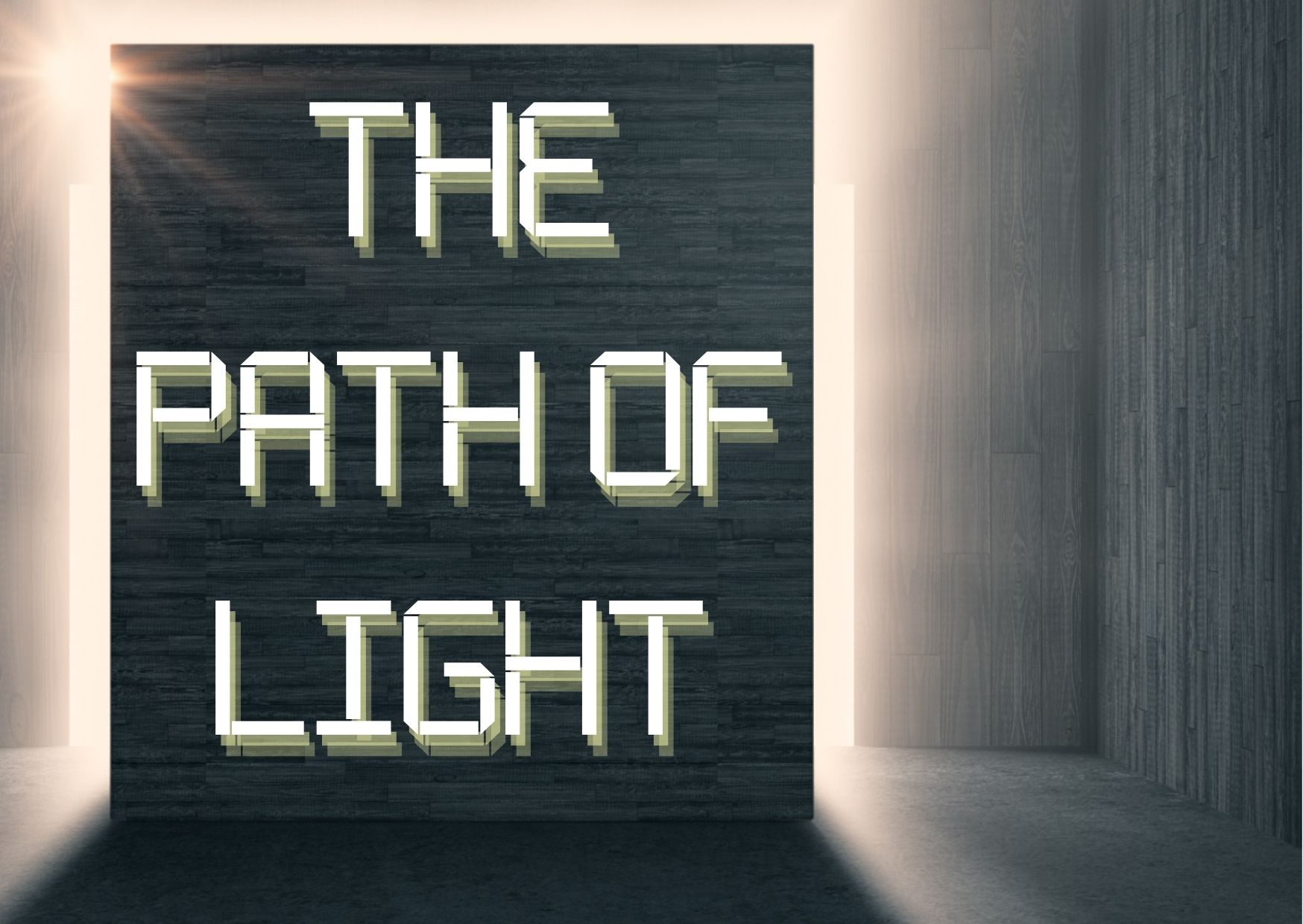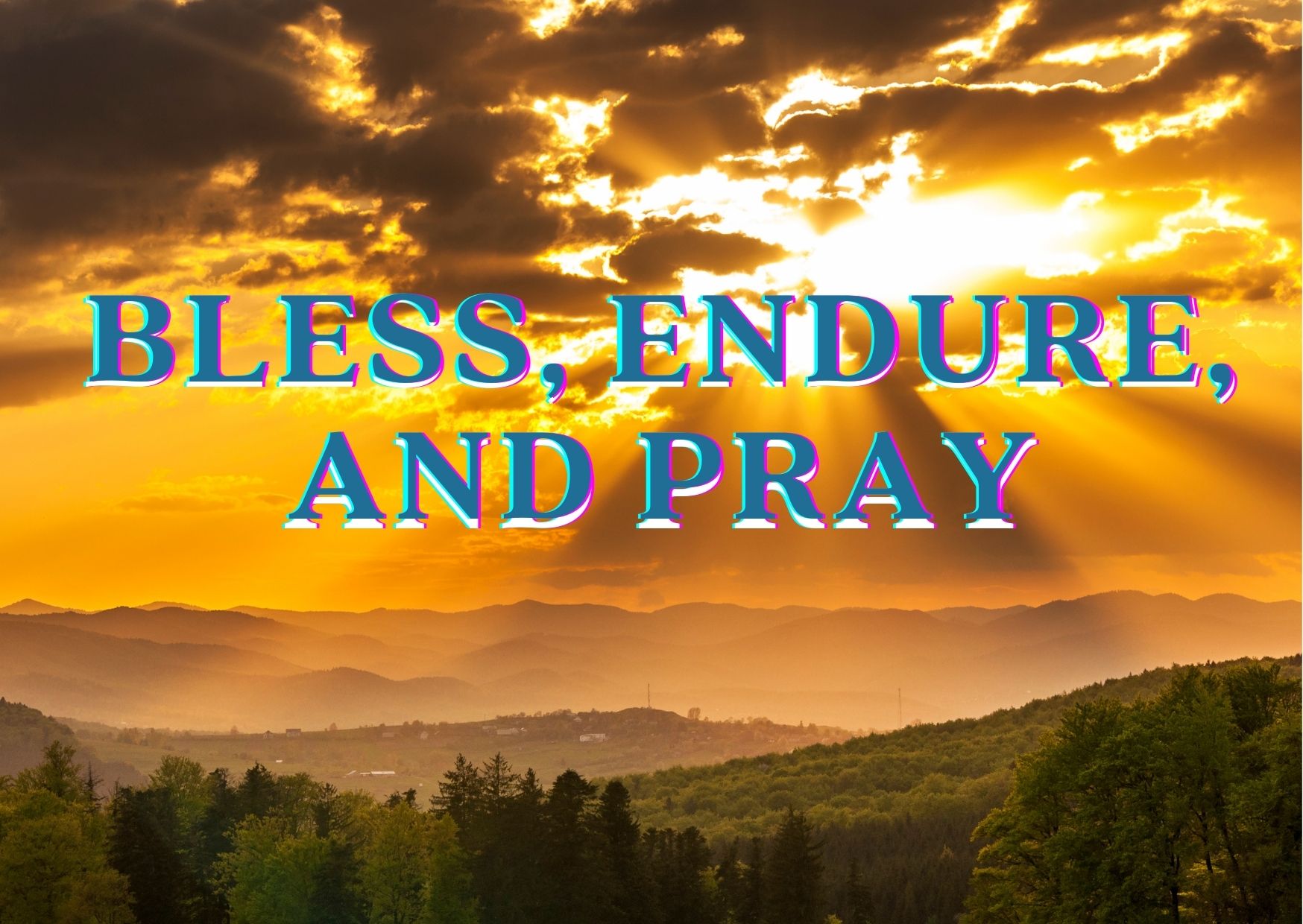
Please & Thank You

Please and Thank You.
The other day Theo and I were driving in the car, and a song came on the radio; it was “Fill my Cup” by Andrew Ripp, and he asked, “Why the singer didn’t say ‘please’ when he asked God to fill his cup?” for being a 4-year-old he makes a good point. And I stopped and realized how wise this is. That got me thinking, “Why don’t we say ‘Please’ when we make requests of God?” I started reflecting on my prayers and thoughts toward God and how I don’t even use common courtesy in my appeals when I pray to God. I ignore even the most basic manners and niceties required of my children when I speak to our Heavenly Father. ‘Please’ and ‘Thank you, are simple ways to soften the request and be polite and respectful. It places the petitioner in a position of humility and changes the tone of the prayer.
Meanwhile, we whine and demand like bratty, ungrateful offspring. We call out to God without ever giving a second thought to the nature of our asking, let alone the content of our request. As a result, our prayers are not only self-centered, but they carry a feeling of entitlement, reminding me of the timeless passage in James.
James 4:2-3 “You desire but do not have, so you kill. You covet but you cannot get what you want, so you quarrel and fight. You do not have because you do not ask God. 3 When you ask, you do not receive, because you ask with wrong motives, that you may spend what you get on your pleasures.”
Everything in this passage points toward self-centered attitudes. It is all about desires, covetousness, and personal pleasures. In this passage, we see the first concern is that we attempt to solve our problems independently without asking God. Then when we finally ask, our hearts aren’t in the right place. Perhaps our motives will begin to align if we approach God with a polite, respectful, and reverent attitude.
It is not as though God doesn’t want us to ask. He is ultimately good and wants to give us good things… but what we ask for is not often of the highest caliber.
Luke 11:11-13 “What father among you, if his son asks for a fish, will instead of a fish give him a serpent; 12 or if he asks for an egg, will give him a scorpion? 13 If you then, who are evil, know how to give good gifts to your children, how much more will the heavenly Father give the Holy Spirit to those who ask him!”
We should note the contrast that Jesus uses in this passage. Jesus plainly states that we can give ‘good’ gifts even though we are evil. God can provide even more perfectly than we can even attempt. Jesus then clarifies that the best and highest gift is the Holy Spirit. Signaling requests pertaining to the spiritual nature are better than a request of the physical variety.
Let’s change our attitude toward asking God. First, let us humbly and respectfully approach Him, even using words like ‘Please’ and ‘Thank you. And then let us make sure we are placing a value on our spiritual concerns and not only on our physical dilemmas. Finally, let us take note of how our prayers change by adjusting these two areas when we talk to God.
Bluetooth

Bluetooth
My phone died this last Wednesday. My first discovery was it is shocking how much I rely on my phone. People would call and text; I could hear it ring, yet there was no way for me to respond. It was incredibly frustrating. However, I did discover a workaround. If my phone is in my truck, I could send text messages and make calls using the truck’s Bluetooth capabilities. However, for this to work, I needed to be in my vehicle, and it needed to be on; for this to happen, it meant running the engine because it was 95 degrees outside. A running truck uses gas; we all know gas prices are too high to sit in my vehicle and make phone calls. Therefore, I have been largely unreachable for the last five days. Then whenever I would get into my truck, I would see that I had missed notifications and texts to which I could not respond. Reminding me how much I use my phone with each report and alarm. Being tethered to a vehicle reminds me of a passage from Hebrews; the writer compares the earthly priesthood with the position that Jesus holds. Simplistically, priests are the agent acting between the people and God. The uncleanness of humanity requires purification before approaching a holy and righteous God. The priests were the conduit for the people of Israel to interact with God.
Hebrews 7:24-26 – “But because Jesus lives forever, his priesthood lasts forever. 25 Therefore he is able, once and forever, to save those who come to God through him. He lives forever to intercede with God on their behalf. 26 He is the kind of high priest we need because he is holy and blameless, unstained by sin. He has been set apart from sinners and has been given the highest place of honor in heaven.”
Hebrews 8:1-2 – “Here is the main point: We have a High Priest who sat down in the place of honor beside the throne of the majestic God in heaven. 2 There he ministers in the heavenly Tabernacle, the true place of worship that was built by the Lord and not by human hands.”
Similar to my phone, I needed a way to make and receive phone calls, but I needed to use my truck’s Bluetooth capabilities to channel the phone’s abilities. However, that would mean permanently attaching me to my vehicle, which is awkward and untenable. Prior to Jesus, God’s people were tied to a priesthood, a limited intermediary that could allow them to approach and connect with God. This changes with the sacrifice and priesthood of Jesus. He is forever able to intercede and interact with God, as he is God and in the presence of God. We do not have a secondary instrument required to connect with God. Our access to God is immediate and instantaneous. We don’t have to enter a man-made temple or location; we become the temple. We don’t need an intermediary or mediator; Jesus is that, and he always has access, and even more than that, his sacrifice made us a kingdom of priests. Making our access to God is perfectly complete. How great it is to have direct access to the God of the cosmos without needing a mediator.
Rise & Shine

Rise and Shine!
One of the fastest ways to be discharged from the military is having a non-disclosed medical issue. Individuals who decide to enter the armed forces report to their closest Military Entrance Processing Station (MEPS). At MEPS, medical personnel will evaluate recruits on their mental and physical fitness to join a military branch. This process involves an in-depth medical evaluation, checking eyesight, joints, cardiac functions, and any possible motor issues. However, there is one area that they can’t check and can go unnoticed until a recruit arrives at their basic training station. This condition affects about 3% of adults, but it is far more prevalent in children, affecting about 17%. So what is the reason for immediate discharge? Somnambulism knew as sleepwalking. Most people grow out of this condition as they grow, but it is easy to see why it is detrimental to the armed services. It would be unfortunate and dangerous for an individual to sleepwalk in a combat environment. And although it might not even seem like a big deal in civilian life, it would have dire consequences on the battlefield. Therefore, once an individual is diagnosed with somnambulism, they are immediately discharged from service.
Before this diagnosis, a person might not even know they sleepwalk. However, cramming 60 people into an open bay barracks and physically exhausting the recruits leads to the right circumstances for this disorder to be noticed. Monitoring sleeping habits was one of the duties of the nightshift of Charge of Quarters (CQ) to see if anyone was waking up and wandering around.
Sleepwalking in the military makes me think of two verses regarding our Christian walk. The first comes from Jesus’ Sermon on the Mount, the infamous log and speck passage.
Matthew 7:3-5
“Why do you see the speck that is in your brother’s eye, but do not notice the log that is in your own eye? 4 Or how can you say to your brother, ‘Let me take the speck out of your eye,’ when there is the log in your own eye? 5 You hypocrite, first take the log out of your own eye, and then you will see clearly to take the speck out of your brother’s eye.”
We can only notice these circumstances when we live in an intimate community with each other. You must know someone well to see a speck in their eye. Like sleepwalking, you must be in a tight-knit group before someone else can notice something like this. A hermit living alone in the mountains might never know they have a problem like sleepwalking. However, we all have specks or even logs, and living in proximity to others can address these hidden obstacles. Unfortunately, many people want to avoid this scrutiny and would rather not know or hide that they have internal struggles. This leads me to my second thought about sleepwalking.
Ephesians 5:8-16
“Walk as children of light 9 (for the fruit of light is found in all that is good and right and true), 10 and try to discern what is pleasing to the Lord. 11 Take no part in the unfruitful works of darkness, but instead expose them. 12 For it is shameful even to speak of the things that they do in secret. 13 But when anything is exposed by the light, it becomes visible, 14 for anything that becomes visible is light. Therefore it says, “Awake, O sleeper, and arise from the dead, and Christ will shine on you.” 15 Look carefully then how you walk, not as unwise but as wise, 16 making the best use of the time, because the days are evil.”
This passage instructs us to walk as children of light, meaning we don’t choose to bury or avoid our issues. Instead, we want to expose them to the light. We don’t purposely hide our hang-ups, but we want to use our time wisely to bring Christ to the world. And we cannot do that if we are living halfway in secret. So, I urge you today to Rise and Shine!
Delivering the Good News

Blog 6.27.2022
Delivering the Good News
Invariably, when there is something to be accomplished in the Condos home, a generalized request is sent out, “Would someone please pick up the firetruck in the middle of the floor.” The only people to hear that request are typically the other parent, who is already attending to another pressing matter, probably a missing shoe. When the original request is unsuccessful, I develop a more specific plea, “Theo, please put the firetruck into the toy bin.” Once again, Theo either did not hear the request or ignored it because it was “boring.” However, Cooper will have heard it and sharply replied that he is also looking for the missing shoe. This is precisely why I asked Theo to take care of it the second time. The only way a request like this ever gets accomplished is by taking the time to personally walk up to Theo, get on his level (possibly stooping to the ground), and ask him to pick up the toy. Finally, after all that effort, someone will pick up the toy, accomplishing the simplistic undertaking.
The irony of ministry or perhaps just communication is that the people who need to hear a message are never listening. I was given terrific advice nine years ago as I started my ministry career: “Never present a message designed for one specific person.” When you ignore this advice, you only harm yourself. You will spend hours crafting the perfect sermon or lesson for the targeted person to hear. You will work on details that will strike the heart and possibly affect real change in the individual. But, almost without fail, the person you were hoping to reach won’t be there when it comes time to present the message. In the grand scheme of things, it always works out because God was simultaneously working on someone else’s heart, but for the presenter, the message does not land the way we intended, and you will feel discouraged at your failed attempt.
Having listeners attend to a message is not new; Jesus encountered it throughout his ministry and pointed out this fact to his disciples in the first parable.
Matthew 13:13, 19, 22 – “13 This is why I speak to them in parables: “Though seeing, they do not see; though hearing, they do not hear or understand. … 19 When anyone hears the message about the kingdom and does not understand it, the evil one comes and snatches away what was sown in their heart. This is the seed sown along the path. … 22 The seed falling among the thorns refers to someone who hears the word, but the worries of this life and the deceitfulness of wealth choke the word, making it unfruitful.”
Jesus begins by stating why he used parables, which indicates the audience’s willingness to hear and understand. Many do not want to hear; perhaps it is too “boring,” complicated, or different from their preconceived biases. Others hear, yet other priorities take root; maybe they are looking for a lost shoe. However, the message still needs to be declared.
Romans 10:14-17
“But how can they call on him to save them unless they believe in him? And how can they believe in him if they have never heard about him? And how can they hear about him unless someone tells them? 15 And how will anyone go and tell them without being sent? That is why the Scriptures say, “How beautiful are the feet of messengers who bring good news!” 16 But not everyone welcomes the Good News, for Isaiah the prophet said, “LORD, who has believed our message?” 17 So faith comes from hearing, that is, hearing the Good News about Christ.”
People still need to believe and to believe, and they need to have first heard about Jesus. So perhaps, just like the opening scenario, we specifically address them and have a one-on-one conversation about Jesus. And to be most effective, we must personally walk up to them, get on their level, and tell them about the Good News.
What Will You Do For Jesus

What Will You Do for Jesus?
We get it; working around Sundays can be a challenging prospect. Often it seems as though the ritualistic nature of Sundays gets in the way. Amanda and I began celebrating Father/Mother’s Day a day earlier than everyone else this year. The reasoning is simple, our Sunday mornings are filled with other pertinent matters. And so, my wife, in her amazing and brilliant wisdom, decided that it would be best (read less chaotic) if we simply observed these special days a day earlier. The funny thing is it took us eight years of ministry to figure this out, although we’ve only had children for four of those years. Regardless of how long it took, this switch was transformative for our family. We were able to celebrate each other and enjoy the morning at a relaxed pace. Why were we trying to cram everything into one day? Why did we feel we needed to mash everything into a Sunday morning?
Some of that is trying to keep up with social and cultural norms. We play along with what society says and don’t consider why we are doing these things. Some of it has to do with our luxurious living, where we dedicate a whole day to a parent or person. Gone are the days of a coffee mug and tie. Now we feel the need to lavishly exaggerate our celebration. I believe it is good to recognize the people in our lives, and it is positive reinforcement for all we do for each other. The problem is, why do we feel the necessity to pack it on top of Sundays? A day where we should be reflecting on Jesus.
Mark 16:2- “Very early on the first day of the week, just after sunrise, they were on their way to the tomb.”
Acts 20:7- “On the first day of the week we came together to break bread. Paul spoke to the people and, because he intended to leave the next day, kept on talking until midnight.”
1 Corinthians 16:2- “On the first day of every week, each one of you should set aside a sum of money in keeping with your income, saving it up, so that when I come no collections will have to be made.”
From these passages, we can see the forethought that should go into our weekly meetings. We will go out of our way to schedule and prioritize every moment of our lives, but we will seldom put that same effort into making sure we are meeting together on a regular basis. If I assert that Jesus is the most essential piece of my life, can I reorganize it to reflect this reality? What else could I switch around to place more emphasis on the body of Christ?
Historically the Jewish people were well accustomed to making their rhythm of life reflect their spiritual reality. I am not suggesting that we become dogmatic or rigid about these concepts; I am merely suggesting that we think of our lives with this question: What will you do for Jesus? Switching up our special day observances was a simple and beneficial way for my family to say, Jesus comes first.
Memories

Blog. 6.13.2022
Memories
Attending someone’s memorial service is one of the more underrated experiences that most people avoid or dismiss. Being in this profession for the last nine years, I have had ample opportunity to listen to an individual’s farewell tribute, even when I didn’t know them personally. It is fascinating to hear about someone’s life and legacy. I get to formulate my thoughts and opinions about them from the perspective of their entire life. And typically, at these celebrations of life, the only things that are shared are good memories, so I get to know the best about an individual (this helps with the concept of grace). We often see people for a brief snapshot of their life, and these moments only give us insights into who they are and the lives they lived. But at a memorial service, I can hear their impact and the memories shared across the totality of their existence. Whenever I leave a service like this, I feel the urge to make the most of my time on earth. I think of the memories I will leave for others to cherish, and I want to make sure that the memories that people have of me are good ones. And when people think of me, it will be a fond memory they recall.
Memories are an interesting phenomenon. They are tied back to the person that we once knew. They link us to each other in ways that overcome space and time. We can instantly recall someone in our life’s history long after our interactions with them are gone. It is a humbling and encouraging thought to know the impact we can have on each other. Tragically our intimate recollections are also fleeting. It will eventually disappear no matter how much we want to hold onto a memory. It is a sad truth that there will come a time when no one will remember us. The writer of Ecclesiastes put it like this: “No one remembers the former generations, and even those yet to come will not be remembered by those who follow them” (Ecclesiastes 1:11). Think about it from your anecdotal perspective; what do you really know about your great-great-great-grandfather or grandmother? Do you even know their names? As depressing as this thought can be, I want to leave you with a hopeful message; no matter who forgets about you on earth or how temporal everything appears, there is one who knows you and will never forget you.
Luke 12:6-7
“What is the price of five sparrows–two copper coins? Yet God does not forget a single one of them. 7 And the very hairs on your head are all numbered. So don’t be afraid; you are more valuable to God than a whole flock of sparrows.”
Although there will come a time when no one remembers you, God will always know you. Jesus’ words in this passage are reassuring and comforting. We are so valuable to God; He even numbers the hair on our heads. The details that God knows about us are truly immeasurable. And even when others forget about me, God will know these intimate details. And for those who participate in the new covenant, there is an additional benefit.
Hebrews 8:10-12
“For this is the covenant that I will make with the house of Israel after those days, declares the Lord: I will put my laws into their minds, and write them on their hearts, and I will be their God, and they shall be my people. 11 And they shall not teach, each one his neighbor and each one his brother, saying, ‘Know the Lord,’ for they shall all know me, from the least of them to the greatest. 12 For I will be merciful toward their iniquities, and I will remember their sins no more.”
God will remove all our sins and remember them no more. Like these memorial services, He will recall only the best parts of us and bring them to memory. Our earthly memories will fade and come to an end, but to the Living God, we will always be remembered as those made blameless in the blood of the Son. That is why the best actions we can take in this life are not to live for the praise and accolades of men but to secure our treasure in heaven, where even memories will not be extinguished by the ravages of time.
Starting Today

Blog 6.6.2022
Starting Today
Record numbers of those professing to be followers of Christ are leaving their churches. Across the board, young people are turning their backs on formal religion and its ritual observances. The Barna Research Group noted an alarming statistic that “nearly two out of every three young Christians (64%) disconnect either permanently or for an extended period of time from church life after age 15.” Reading a statistic like this will always break my heart. My heart aches for those that leave and never come back; for them to approach the love of Christ and reject it overwhelms me with sorrow. Their website (Barna Group – Knowledge to navigate a changing world) has a lot of great resources; they have done a lot of surveys and research on how to maintain this disappearing demographic. I highly recommend looking into their assortment of studies to gain perspective.
However, I believe two things can happen when we look at research studies and surveys like this. The first is that we begin to feel hopeless, desperate, and perhaps that all is lost. I encourage you to not fall into this trap of thinking. We (Christians) are built upon hope; even when all seems to be lost, we have a God who can do the impossible. “Jesus looked at them and said, “With man this is impossible, but with God, all things are possible” (Matthew 19:26).
The second is that we tend to point fingers when we read this kind of information. We blame every generation for its failings. We condemn the one generation for their lack of love. We blame another for their lack of conviction. Yet another is blamed for its soft stance on biblical issues. We point fingers and blame everyone for their contributions to this problem. Jesus has a far different approach to looking at these issues; they are found in Matthew 7:3-5, the discourse of the speck and log. Jesus plainly teaches that when there are glaring weaknesses in our spiritual walk, we first address our shortcomings and then help out those around us. We all have spiritual struggles; to deny this is to call God a liar, “If we claim we have not sinned, we make [God] out to be a liar, and his word is not in us” (1 John 1:10). The proper adjustment is to take stock of your own walk and fix the areas you are lacking, and if you are lacking, God will bring you to maturity. If you don’t know if you have a speck in your eye, ask someone; perhaps they can see it well enough to help you pinpoint the culprit.
In their book “Faith for Exiles” David Kinnaman and Mark Matlock present a strong strategy for exodus-proofing a church. It is by maintaining a multigenerational approach to all aspects of life. This means breaking out of a “Sunday morning mentality” or having conversations with people in a different age category. It might even mean leaving your specific region of the building to talk to someone across the aisle. Here are some questions to consider: when was the last time you spoke to someone that was not your “”normal”” group at church? When did you seek out someone in a different age group than you? These little questions are the specks in our eyes; let’s not let them turn into logs.
One final thought on issues like this. It is easier to “”Monday morning quarterback”” or second-guess what we should have done in the past. It is harder to look forward, hold ourselves accountable and make the necessary adjustments. It is like putting our hand on to plow and looking back; we can’t live like that. Starting today, we must keep our eyes firmly fixed on our intended direction and start moving the way we should be heading.
Luke 9:57-62
“As they were walking along the road, a man said to him, “”I will follow you wherever you go.”” 58 Jesus replied, “”Foxes have dens and birds have nests, but the Son of Man has no place to lay his head.”” 59 He said to another man, “”Follow me.”” But he replied, “”Lord, first let me go and bury my father.”” 60 Jesus said to him, “”Let the dead bury their own dead, but you go and proclaim the kingdom of God.”” 61 Still another said, “”I will follow you, Lord; but first let me go back and say goodbye to my family.”” 62 Jesus replied, “”No one who puts a hand to the plow and looks back is fit for service in the kingdom of God.”
The Path Of Light

Blog 5.30.2022
The Path of Light
My boys love playing in the dark; I think all children do. It is mysterious, disorienting, and allows for a little more mischief. When the lights go off, there are shrieks of excitement. Then, they begin bumping into each other and flailing around in the dim light. It is fun for a time, but eventually, there is a minor injury, and the lights have to come on to solve the issue. Because of that reason, I am not a proponent of playing in the dark. The lighthearted play gets out of hand too quickly, and I must figure out what happened in the darkness, which is impossible because I don’t have night vision and can never be sure what transpired. Typically, I have to tell the boys, ““This is what happens when you play in the dark, it might be more fun, but someone will probably get hurt.””
I can resolve some of the injuries by introducing a tiny battery-powered flashlight. It is amazing how this small device allows for their creative juices to unfold and gives them the ability to avoid collisions in the darkness. I am also impressed by how a flashlight enables them to control their environment. No matter how dark their room might be, that tiny light gives them power over their surroundings. They are no longer hindered by their lack of sight; they can navigate in a way that is transformative.
The world we live in is dark. There is no denying that it is also apparent that this was not how God intended it when we spoke that everything was “very good at the end of His creative actions in the first narrative in Genesis. It is also no surprise that many people enjoy living in darkness. It is mysterious, disorienting, and allows for a little more mischief… for a time. The challenging part is so many people live in this darkness that they don’t even know how to find a light. If they could find the light, they would not know how to switch it on.
This is where God has been gracious to us. In the narrative of Nehemiah, after some Jews returned to Jerusalem after their exile, Levites stood recounting their history of God’s people. They retold the pattern of God working as the Israelites wandered through the desert.
Nehemiah 9:19
“Because of your [God’s] great compassion you did not abandon them in the wilderness. By day the pillar of cloud did not fail to guide them on their path, nor the pillar of fire by night to shine on the way they were to take.”
God does not leave us to stumble around in the darkness. He does not resolve to let us trip over and harm each other. Instead, God gives direction and leadership to a wandering and disoriented group of people. In His great compassion, He provides a light that shines in the darkness.
John 8:12
“When Jesus spoke again to the people, he said, ““I am the light of the world. Whoever follows me will never walk in darkness, but will have the light of life.””
It is no doubt that the life of Jesus is the path we are to take. We are to live like Him because he is the light by which we walk. In a disorienting and confused world, we need to grab hold of the Light. If we do, we might be surprised how much control and awareness the Light will provide us. Tragically, what we witness now is people attempting to fight darkness with more darkness. This can never be the solution. The only way to be surrounded by darkness is to be changed into a demonstration of the Light.
2 Corinthians 4:6-12
“For God, who said, ““Let light shine out of darkness,”” made his light shine in our hearts to give us the light of the knowledge of God’s glory displayed in the face of Christ. 7 But we have this treasure in jars of clay to show that this all-surpassing power is from God and not from us. 8 We are hard-pressed on every side, but not crushed; perplexed, but not in despair; 9 persecuted, but not abandoned; struck down, but not destroyed. 10 We always carry around in our body the death of Jesus, so that the life of Jesus may also be revealed in our body. 11 For we who are alive are always being given over to death for Jesus’ sake, so that his life may also be revealed in our mortal body. 12 So then, death is at work in us, but life is at work in you.”
Take a moment to reflect on these words of Paul. The situation is not grand for those that hold the light. They will be hard-pressed, perplexed, persecuted, and struck down. However, the light will still be shining within them. I love how Paul writes this. We hold our lights in jars of clay. In this scenario, the light can only shine out of the mouth of the jar, a very limited opening. That is until the jar is crushed. It is at that moment the light can be visible for all to see. It is not until we live in a self-sacrificing way that the Light will be apparent to all. It is at this moment that “his life may be also revealed in our mortal body.””
Eventually, the darkness will lose its appeal. Maybe not for everyone, but for those who are seeking, a light will shine out of the darkness like a beacon of hope. And when people come searching, we should be ready to show them what true Light and Life really looks like. The path of Jesus, the path of Light.
Overlook

Overlook
I think we are all a little angrier lately. It is hard to not look around the world and see or even experience the escalation of hot-headed temperaments. Here are some statistics from the last 10 years. In a 2019 survey by AAA, nearly 80 percent of drivers in a 2019 survey had shown significant aggression while driving at least once in the previous 30 days, according to a similar AAA survey. What used to be considered common courtesy on the roads has become a Mad Max free-for-all. Daily videos showcase drivers’ absurdity and reckless natures and habits on every social media site. I’m sure you have felt the rise in anger and aggression in your daily interactions, whether driving or shopping at a grocery store. It is frightening to think about what will happen to us in five years.
Anger is not a new issue for humanity. It is something that God has given to us for us to notice injustice and deal with it appropriately. “Be angry and do not sin; do not let the sun go down on your anger” (Ephesians 4:26). As Paul writes to the church in Ephesus, he doesn’t give them the command to never be angry. God was angry with Israel many times (Num 32:13), and Jesus’s anger was justified in the temple (Matthew 21:12). However, anger in these circumstances was righteous and justified. They both also produced actions that corrected the situation without sinning.
However, today I want to look at two truths displayed in the book of Proverbs. First, it should caution us on how we interact with the world and our course of action with those we encounter.
Proverbs 29:22 “An angry person stirs up conflict, and a hot-tempered person commits many sins.”
Detailed in this verse is something we are all aware of, that an angry person is looking for a fight. They are prone to get into a fight, but they enjoy stirring up the conflict. This is not the kind of anger that has subsided with the setting of the sun. This is an anger that is constantly brewing under the surface. It is not producing any kind of solution, just rage, and malice toward others. This is what I believe we are seeing on the faces and hearts of those around us. This hot temper is looking for trouble that is the cause and root of sin in these people’s lives. We may often think that our anger is not hurting anyone, but it is simmering below the surface, and it is waiting to be unleashed if not confronted or dealt with properly.
Proverbs also gives us good insight on this topic.
Proverbs 19:11 “Good sense makes one slow to anger, and it is his glory to overlook an offense.”
We have to be willing to either let our anger go or find a beneficial way to handle it without turning to a sinful state like hatred or malice. The solution to letting it go is to have “good sense” or understanding. This helps us separate actual injustices and minor inconveniences. It is to our benefit if we choose to overlook these offenses. It is easy to want to retaliate or lash out in frustration. However, the better solution is to address it with understanding. Someone cutting me off in traffic is a minor inconvenience. Human trafficking is a significant injustice. I should be angry at the injustice and let the little stuff go. Keep in mind that if we are angry at something that is truly an injustice, our anger should be channeled to promote action and correct the situation in a godly manner.
This contrasts with someone who wants to follow God’s will and someone who doesn’t. Someone who does not want to place God as the center of their life will want to look for fights and is seeking a way to stir up conflict. However, a Christian will overlook the minor offenses and use their energy for issues that need to be addressed. And may we all pray for wisdom to know the difference and overlook the small stuff.
Bless, Endure, & Pray

Blog 5.16.2022
Bless, Endure and Pray
Anyone married for more than 30 seconds knows that result of two independent people sharing any space together will cause momentary disputes. It is the nature of people; disagreements arise, and it is crucial to work through those conversations in loving and beneficial ways. A fork in the road, which way should you turn? An adjusted couple will discuss the plausibility of each outcome until they can agree upon the direction they will take. It is a process of hearing and listening, giving and taking, and at times compromise. This entire process is sometimes lost on my children. They hear their parents having discussions and perceive them to be outright conflicts. They don’t understand that when ideas are counter to each other, it requires dialogue and understanding. However, children operate on an all or none principle. You are either entirely in agreeance or at insurmountable odds with the other person. This is why kids fight so much; they cannot see an arrangement for compromise or dialogue. If one has a toy and the other wants it, they cannot see the benefit of sharing or taking turns with the toy; it is an all-or-nothing situation.
I see the same childish mentality widespread throughout our culture. Not only are very few people willing to compromise, but very few people will also even come to the table to have a discussion. I believe it is because many of our significant viewpoints are bound too tightly to our sense of identity. If someone disagrees with our statements or beliefs, we feel rejected and despised in their eyes; and we think it must be an all or nothing proposition. We must be approved of, loved, and lauded by all. However, many ideas will be forever unreconcilable, and there is no possibility of compromise. No one will ever fully agree on every point of contention. So, what are we to do when our discussions move in these directions? When two people disagree on significant differences? What happens when things turn ugly and malicious?
As Christians, we have two scriptural passages to guide us in these situations. The first comes as Paul appeals for his readers to listen to the message as he pleads to the church in Corinth.
1 Corinthians 4:10-13
“We are fools for Christ’s sake, but you are wise in Christ. We are weak, but you are strong. You are held in honor, but we in disrepute. 11 To the present hour we hunger and thirst, we are poorly dressed and buffeted and homeless, 12 and we labor, working with our own hands. When reviled, we bless; when persecuted, we endure; 13 when slandered, we entreat. We have become, and are still, like the scum of the world, the refuse of all things.”
Paul wanted the church in Corinth and us to know that we approach everything in regard to Christ no matter what. Whether you are foolish/wise, weak/strong, or honored/dishonored, ensure it is with Christ as our focus and the end to our means. Everything that happens, even in discussions where we are disagreed with, we are to ensure that it is with Jesus as our goal. Even if we are right in our discussions, we maintain the Christ-like behavior of “when reviled, we bless; when persecuted, we endure; when slandered, we entreat.” We don’t really use words like “entreat” anymore; however, the Greek word is παρακαλέω parakaléō, meaning to call near, invite, (be of good) comfort, and finally to pray. The thought is that when we are slandered, we turn around and pray for them; when we are cursed before men, we take our case before God and pray for our enemies. This is the mark of a disciple of Jesus, who “when he was reviled, he did not revile in return; when he suffered, he did not threaten, but continued entrusting himself to him who judges justly” (1 Peter 2:23 ESV).
The second comes from Jesus as he declares the Beatitudes.
Matthew 5:11-12
“Blessed are you when people insult you, persecute you and falsely say all kinds of evil against you because of me. 12 Rejoice and be glad, because great is your reward in heaven, for in the same way they persecuted the prophets who were before you.”
Even though the world may become angry and upset when they are disagreed with or when we conflict with ideologies. Those disputes should not bother us as long as we are standing in fellowship with Jesus. If we are rejected or even persecuted, for Christ’s sake, it is a blessing and a moment of rejoicing. The most important thing is not winning an argument but standing with and in Christ. This does not mean we seek out conflict to receive this blessing; however, these passages give us the strength to stand up to pressures when we stand opposed to the culture around us. This doesn’t mean we remain silent or satisfy the world’s ideas; we should stand up for our beliefs because it is not about us but Christ. The best way to do this is to Bless, Endure and Pray for those who disagree with us.
It’s Too Hard

Blog 5.9.2022
It’s Too Hard
Theo and Cooper are testing Amanda’s and my patience lately. They have been pushing their limits in every available direction. Testing boundaries and seeing what they can get away with before crossing that imaginary line of parental longsuffering. In the midst of this independence extravaganza, they also imagine new stall tactics to keep from doing things that they don’t find enjoyable. Things like naps, putting on shoes, or brushing teeth are met with the same hesitancy and reluctance. However, instead of saying they don’t want to do something, they loudly exclaim, “It’s too hard!” Refusing to do whatever the suggested task is. It is difficult to explain to a 4 and 3-year-old that just because something is hard does not mean you don’t have to do it. Cooper has taken this defiance to a whole new level lately. He now says the often decreed “It’s too hard” even with pleasurable activities. Example script below.
Mom/Dad: Cooper, you need to eat your cake before you can have ice cream.
Cooper: It’s too hard. The cake is hard. Eating is hard. (Begins to wail loudly)
It would be beyond comical if it weren’t so frustrating and feel free to laugh at our circumstance. I’m sure that we can all resonate with the notion that life is hard. Cooper is not wrong. Even the most pleasurable things in life can be difficult. Very few people are granted the opportunity to grow up and live on Easy Street. In Romans 5:3-4, Paul correlates that without suffering, you lack character, and perhaps you have met those individuals that lack those character-building conditions. Therefore, even the best things in life must be worked for beforehand to enjoy them later. However, as we mature and grow, we realize that many things require hard work for them to become a reality in our lives. We recognize that there is a trade-off, the difficult for the pleasurable. It calls to my mind the example of Christ and the challenge issued by the writer of Hebrews.
Hebrews 12:1-4
“Therefore, since we are surrounded by so great a cloud of witnesses, let us also lay aside every weight, and sin which clings so closely, and let us run with endurance the race that is set before us, 2 looking to Jesus, the founder and perfecter of our faith, who for the joy that was set before him endured the cross, despising the shame, and is seated at the right hand of the throne of God. 3 Consider him who endured from sinners such hostility against himself, so that you may not grow weary or fainthearted. 4 In your struggle against sin you have not yet resisted to the point of shedding your blood.”
The writer of Hebrews acknowledges that our race is brutal. He just finished the chapter recounting all of the challenging circumstances that people of faith have been enduring since the beginning of time. God asks those who follow him to do really demanding tasks all of the time. God places their comfort, livelihood, and even their lives in the balance time and time again. This is not an ideal covered up in the scriptures. Throughout Jesus’ ministry, he made statements like, “Foxes have holes, and birds of the air have nests, but the Son of Man has nowhere to lay his head” (Luke 9:58), and “If anyone would come after me, let him deny himself and take up his cross and follow me” (Mark 8:34). Each one of these statements is full of hardship and difficulty. And to think that Jesus’ earthly life, so full of adversity, ended with death on a cross. Framed in this light, it almost makes the challenge of following Christ too much to bear. However, the passage in Hebrews gives us hope. Jesus did all of this not for his own advantage but for all of those who will follow him. Jesus endured the shame, the cross, and the hostility of the world so that we might not grow weary and give up. Jesus also had a much different end in mind. His end was not solely his accomplishments on earth but returning to the throne room of God. This should also change our perspective so that when life becomes impossible to bear, when we want to cry out, “It’s too hard!” We adjust our mindset, setting our focus and thoughts on Jesus and running the race set before us.
Without Limits

Blog 5.3.2022
Without Limits
We had some additional concrete poured for our front driveway and back patio this last week. We simply wanted to have a little more space to drive and walk across. It was a relatively quick and straightforward process; one day to prepare the area and another day to pour the concrete. However, once you pour the cement, a few more guidelines need to be followed. It takes at least 24 hours for the concrete to be strong enough to walk on. The common thought is that the longer you wait, the better it will be; the full curing process takes about 28 days, but you can drive on the surface after one week. Hard materials will scratch the surface during the first 72 hours, so things like dog nails and most toys should be kept off the new cement for at least that time. Having small children made this some of the most nerve-wracking 72 hours of my life. Each of our boys wanted to see and touch the new material, and in their thinking, concrete is hard right? How hard is it? When will it be strong enough for me to walk on it? Can I scratch it? It was exhausting. Making a kid stay away from what appears to be an invisible barrier is almost impossible, and it made me think of something that I had never connected before.
In the book of Exodus, God instructs the people not to approach Mt Sinai.
Exodus 19:10-13
“And the LORD said to Moses, “Go to the people and consecrate them today and tomorrow. Have them wash their clothes 11 and be ready by the third day, because on that day the LORD will come down on Mount Sinai in the sight of all the people. 12 Put limits for the people around the mountain and tell them, ‘Be careful that you do not approach the mountain or touch the foot of it. Whoever touches the mountain is to be put to death. 13 They are to be stoned or shot with arrows; not a hand is to be laid on them. No person or animal shall be permitted to live.’ Only when the ram’s horn sounds a long blast may they approach the mountain.”
“Be close but not too close.” I have always read that sentiment from the mindset of a mature adult. But now that I am a parent, this is a terrifying thought. I have a hard time wrangling my children in an unrestricted park or a newly poured patio. I can’t imagine what it would be like to keep my boys from wandering toward the foot of a rattling, shaking mountain. For Milo, it would be like a moth to a flame, drawing closer and closer to an impressive display of God’s magnificence. And now I have to be worried about someone shooting them with arrows! It is enough to turn all of my hairs gray.
In an instance like this, you could imagine the complexity of remaining in the Israelite camp. And many people still feel this way today. How do we draw close to God and maintain the reverence He deserves? How do we approach the foot of the mountain without breaking the limits in place? For a parent, it sometimes seems like these are constantly opposing positions. Children, boundaries, and reverence rarely go hand-in-hand with a four-year-old. And that is why one of the most liberating passages comes in Matthew 19.
Matthew 19:13-14
“Then people brought little children to Jesus for him to place his hands on them and pray for them. But the disciples rebuked them. 14 Jesus said, “Let the little children come to me, and do not hinder them, for the kingdom of heaven belongs to such as these.”
Jesus is not an unapproachable mountain. On the contrary, he is a welcoming Servant King. He has not placed a boundary on his availability or accessibility. Instead, he allows everyone to approach and be changed by him. He is a Savior without limits.